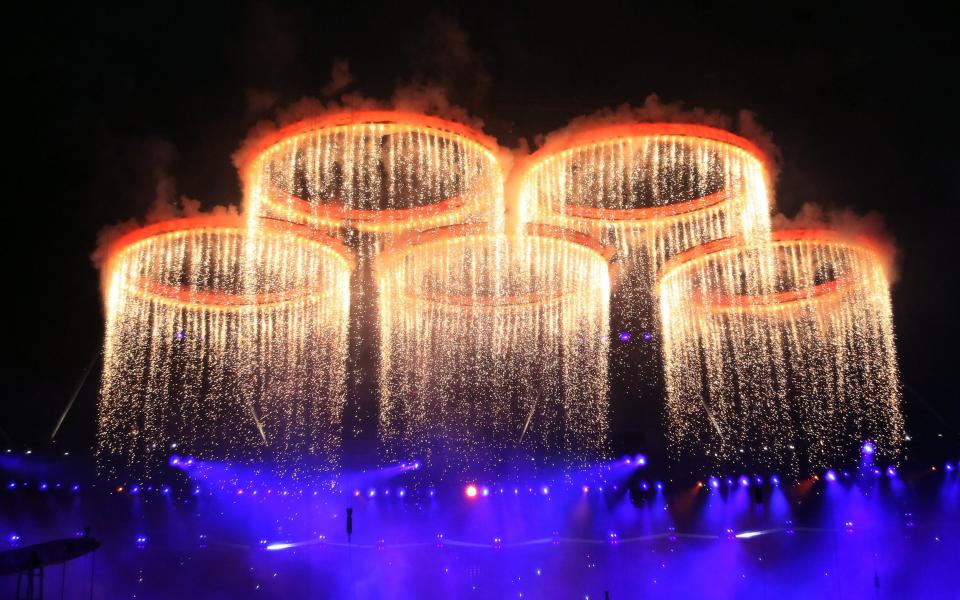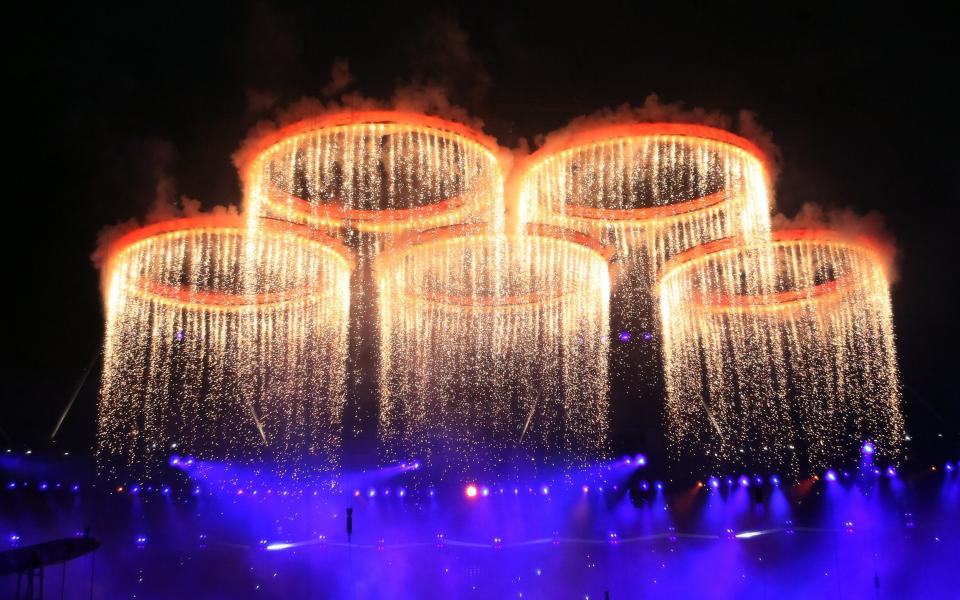
The history of the Summer Olympics does not just show us how sports have evolved over time, but also holds a mirror up to the political and social contexts of the period.
In preparation for this summer’s Paris Olympics, Telegraph Sport has detailed the history of the modern Summer Olympics since the Games were first held in Athens in 1896, listing all summer Olympics host cities.
This year’s Olympics begin on Friday, July 26 with Team GB sending a delegation featuring 327 athletes. Paris is hosting the summer Games for the third time – and the first time in 100 years.
Click on the links below to go to a specific summer Olympics:
Athens 1896 | Paris 1900 | St Louis 1904 | London 1908 | Stockholm 1912 | Antwerp 1920 | Paris 1924 | Amsterdam 1928 | Los Angeles 1932 | Berlin 1936 | London 1948 | Helsinki 1952 | Melbourne 1956 | Rome 1960 | Tokyo 1964 | Mexico City 1968 | Munich 1972 | Montreal 1976 | Moscow 1980 | Los Angeles 1984 | Seoul 1988 | Barcelona 1992 | Atlanta 1996 | Sydney 2000 | Athens 2004 | Beijing 2008 | London 2012 | Rio 2016 | Tokyo 2020 | Paris 2024
Olympic Games list
Athens 1896 – where it all began
1,500 years after the end of the ancient Olympics, the modern Olympic Games we know and love today were born. It was organised by the International Olympic Committee (IOC), which had been created by French aristocrat Pierre de Coubertin.
Fourteen nations, represented solely by men, battled it out across 43 events in the newly-renovated Panathenaic stadium that was originally opened in 566 BC.
The competition’s first ever gold medal was awarded to American James Connolly for triple jump. He also finished second in the high jump and third in the long jump.
Paris 1900
Organisers under-promoted the Games – spread across five months and held as part of the World’s Fair – so much that many participants were reportedly not even aware they had competed in the Olympics.
Women made their first appearance in the modern Olympics, with 22 women competing across five sports: tennis, sailing, croquet, golf and equestrian.
Equestrian sport made its Olympic debut in Paris, including long and high jump competitions for the first and only time in Olympic history. Tennis was one of five sports where athletes from different nations competed on the same team. The four others were football, polo, rowing and tug of war.
St Louis 1904
Just 12 countries competed in the 1904 Olympics, with US athletes accounting for 83 per cent of participants. Again, the Games were spread out over a long period – four-and-a-half months- as part of the World’s Fair.
Women were only permitted to compete in archery out of the approximately 100 sports available. For the first time, gold, silver and bronze medals were awarded for first, second and third place.
American gymnast George Eyser took home six medals, three gold, after competing with a wooden left leg.
London 1908
The eruption of Mount Vesuvius in 1906 forced the Olympics to relocate from Rome to London with very little notice, in what ended up being the longest Games in history (187 days). For the first time, a stadium was built especially for the Games, with the site in London’s Shepherd’s Bush becoming the centrepiece of the event, while swimming and diving events were held in a pool for the first time.
Athletes from Finland, then part of the Russian rule, chose not to march with a flag in protest against Russian rule’
Finnish athletes protested against Russian rule; several Irish competitors refused to compete as subjects of the British crown and Ralph Rose, the US shot-putter, refused to dip the American flag to King Edward VII.
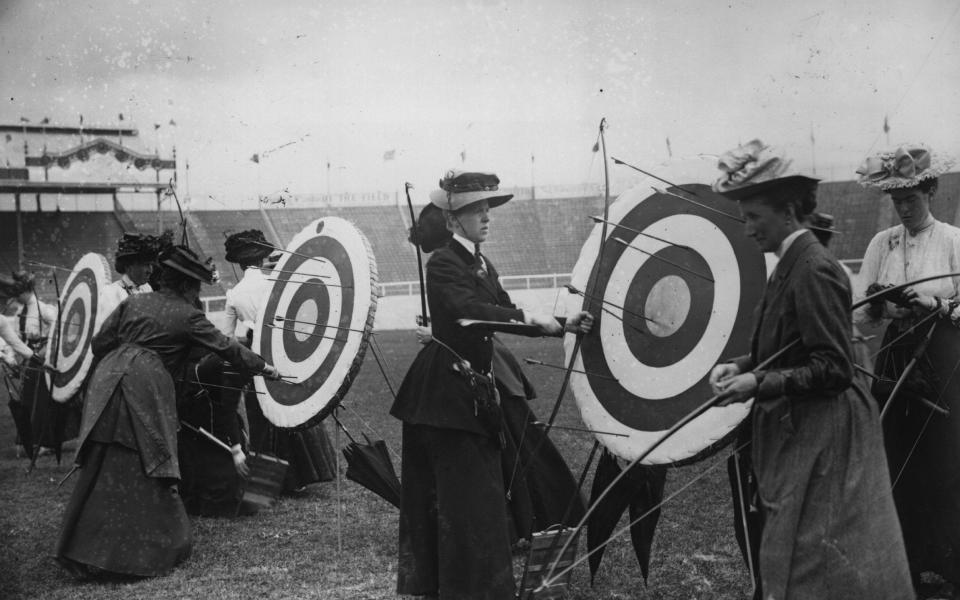
Stockholm 1912
Japan was the first Asian country to ever compete when they joined the 1912 Stockholm Olympics.
The first ever death while competing occurred when Portuguese runner Francisco Lazzaro died during the marathon, a number that has since only risen to two.
Boxing doesn’t take place for the only time in history as Swedish law banned it.
Berlin 1916 – cancelled due to World War 1
Antwerp 1920
Belgium, still reeling from the devastation of World War One, bravely took on the challenge of hosting, with Germany, Austria, Turkey, Hungary, Bulgaria and the new Soviet Union not invited to attend.
The infamous five-ring flag is seen for the first time in the Opening Ceremony. The Olympic oath was taken for the first time by athlete on behalf of competitors.
Sweden’s Oscar Swahn becomes the oldest medalist in Olympic history at 72 with silver in the double-shot running deer event.
Paris 1924
A Games of firsts – the first Olympic village, first official closing ceremony and first standard 50m pool. The number of nations attending went from 29 to 44, with the mass appear of the Olympics as a major event growing.
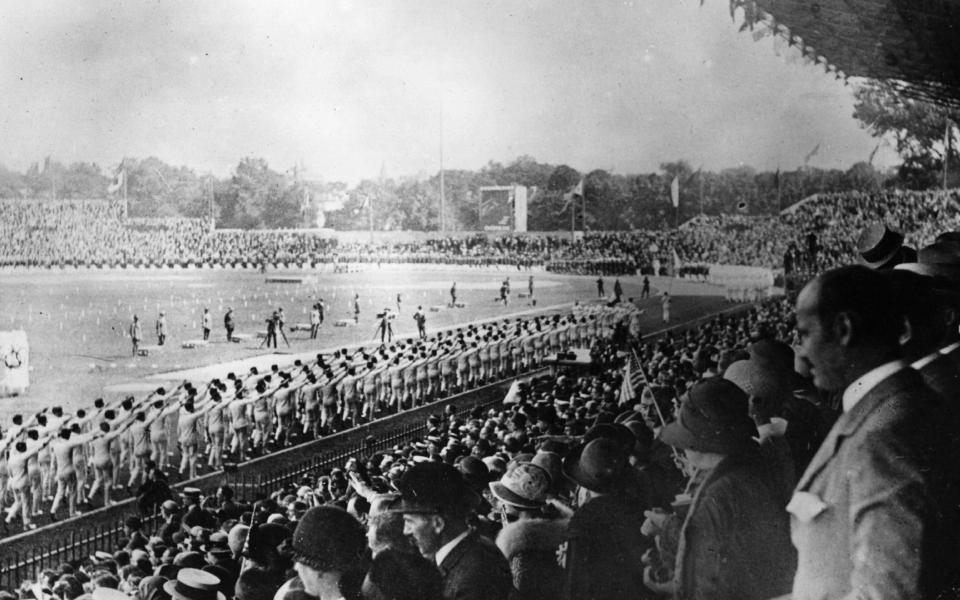
The Games were later immortalised in 1981 film ‘Chariots of Fire’, telling the story of British gold medal-winning athletes Eric Liddell and Harold Abrahams.
It was also the last time tennis was played as a full medal sport until Seoul 1988, with American Titanic survivor Richard Norris Williams winning mixed doubles gold.
Amsterdam 1928
The only Olympics to be held in the Netherlands brought with it the start of some of today’s most sacred Games traditions.
The Olympic flame was lit in the cauldron for the first time and Greece led the parade of nations, like they will down the Seine in July, with hosts France last. The number of female athletes more increased again, with women allowed to compete in gymnastics and athletics.
Australian rower, Henry Pearce, stopped mid-race to let a family of ducks pass and still secured gold.
Los Angeles 1932
Despite the fact the 1932 Olympics took place during the Great Depression, and the number of participants was the lowest since 1904, the sheer scale and quality of the Coliseum Olympic stadium shocked the world and set a new standard for hosting for years to come.
1932 marked the beginning of the new shortened schedule (16 days on this occasion) with previous games taking place over at least 79 days.
Only 126 women competed, making up only approximately 9.6% of competitors, a stark difference to Tokyo 2020 where 49.2% of athletes were female.
Berlin 1936
Adolf Hitler controversially opened the Berlin Games, which many Jewish athletes chose to boycott.
However, no nations abstained from competing, despite threats from the United States. Berlin 1936 was the first televised Games whilst also being the first to feature the Olympic torch relay, which was carried from Olympia to Berlin.
American Jesse Owens left a lasting impact on the world when he took home four gold medals, single-handedly ‘crushing Hitler’s myth of Aryan supremacy’, and went on to be one of the most famous athletes in track history.
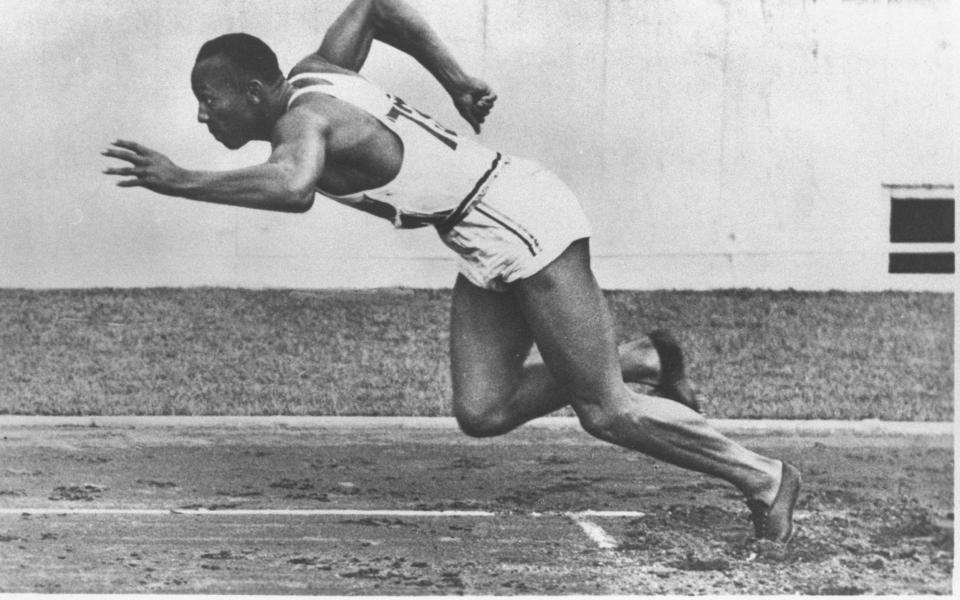
Basketball, canoeing and field handball all appeared for the first time.
London 1944 and Tokyo 1940 – cancelled
London 1948
The Games made a long-awaited return to London after disruption from World War Two resulted in a 12-year hiatus.
Germany and Japan were not on the guest list, and the Soviet decided not to attend. Dutch runner Fanny Blankers-Koen became the first woman to ever win four gold medals in a single Olympics, while Bob Mathias won the decathlon for America aged 17, only four months after taking up the sport.
Helsinki 1952
Israel and the Soviet Union took to the Olympic stage for the first time in history, while women were allowed to compete with men in the first mixed equestrian events.
Czech runner Emil Zátopek achieved an incredible feat when he won gold in his first ever marathon, as well as sweeping to victory in both the 5,000 and 10,000m races.
Melbourne 1956
Oceania’s first Olympics took place later in the year, during Australia’s summer.
The first ever Olympic boycott took place when Spain, the Netherlands and Switzerland all refused to take part in an act of disapproval of the Soviet invasion of Hungary, and China boycotted too in protest of Taiwan competing as its own nation. Egypt, Iraq and Lebanon were also absent to protest against the invasion of Egypt by France, Israel and the UK after Egypt nationalised the Suez canal.
The deep cold war hostilities showed when the USSR water polo team played Hungary, in a clash known as the ‘blood in the water’ match.
Rome 1960
Muhammad Ali, back when he was known as Cassius Clay, took gold in Rome in the light-heavyweight boxing category, kickstarting a memorable sporting career.
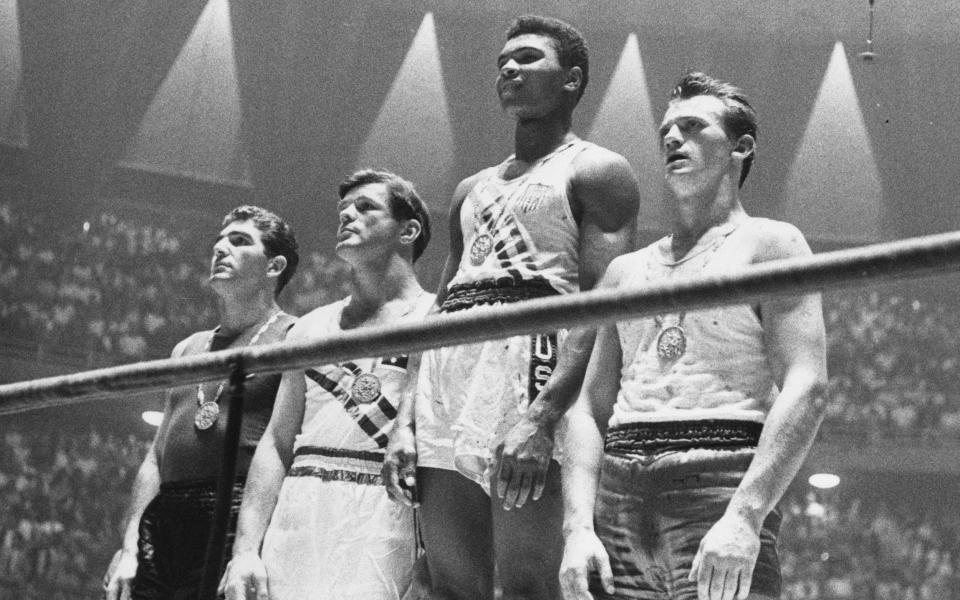
Abebe Bikila, representing Ethiopia, became the first Black African gold medal winner when he won the marathon barefoot.
Tokyo 1964
Asia’s first Olympics was the first Games to be broadcasted internationally, revolutionising Olympic coverage forever. It was also the last Games where hand timing by stopwatch was used for official timing.
Volleyball and men’s judo made their debuts on the centre stage while Yoshinori Sakai, a Hiroshima native born the day the atomic bomb was dropped, lit the torch in a poignant tribute to those lost in the tragedy.
Mexico City 1968
Latin America’s first Games saw a woman – Mexican hurdler Enriqueta Basilio – light the cauldron for the first time and mandatory doping tests for winners.
A big year for the US that saw Bob Beamon set the standard for long jump with a world record that would go on to stand for almost 23 years. The super heavyweight gold boxing medal went to George Foreman.
In a symbolic moment of protest, Black American sprinters Tommie Smith (gold) and John Carlos (bronze) took a stand for civil rights, bowing their heads and raising their black-gloved fists as ‘Star Spangled Banner’ rang out in the Olympic Stadium. They were suspended and banned from the Olympic Games for life by the IOC. Critics called Smith and Carlos’ actions a politicising of the Olympic Games.
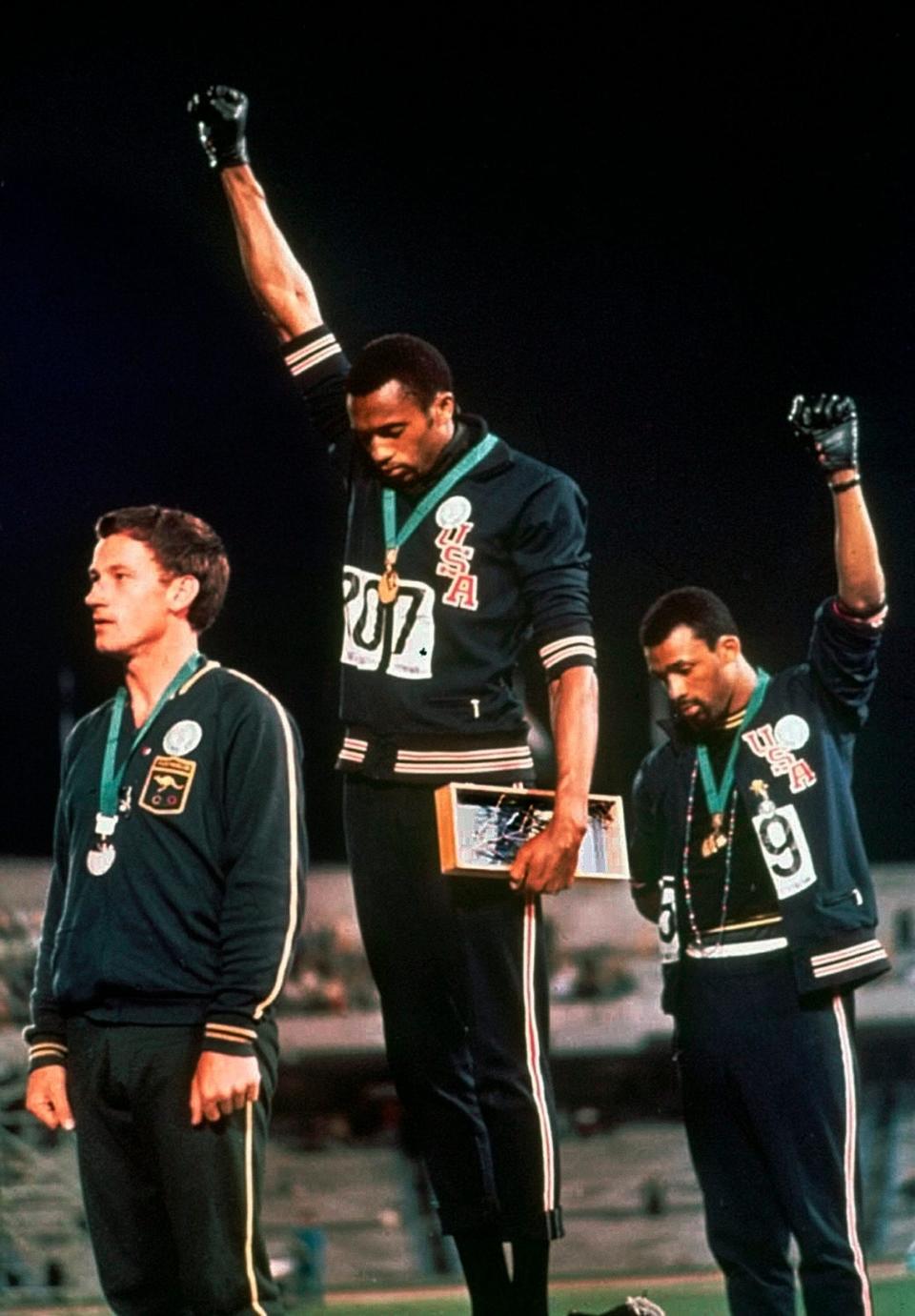
Munich 1972 – Motto: ‘The Cheerful Games’
The largest Games to date at the time saw 195 events, 7,134 athletes and 121 nations compete.
A dark shadow was cast over the celebrations on September 5 when the Palestinian Black September militant group stormed the Olympic Village, killing two members of the Israeli team and taking nine hostages. A total of 17 individuals lost their lives.
The Games were temporarily suspended for the first time in history out of respect for those killed before recommencing with IOC president Avery Brundage stating: “The Games must go on!”
Montreal 1976 – Motto: ‘Long Live the Montreal Games’
Canada’s first time as summer Olympic Games hosts. The victim of another boycott, this time by more than 20 mostly African nations due to the fact the New Zealand rugby union had toured apartheid stricken South Africa and the nation was due to compete at the Games.
Bruce Jenner, now Caitlyn Jenner, smashed the decathlon record, winning gold for the US and 14-year-old Romanian gymnast Nadia Comaneci won everyone’s hearts when she scored the first perfect 10 in history on the uneven bars.
Moscow 1980
A quiet Olympics, after a boycott led by US president Jimmy Carter against the 1979 Soviet invasion of Afghanistan resulted in the fewest number of participating nations since 1956.
A lacklustre 80 competing countries resulted in a forgettable competition.
Los Angeles 1984 – ‘Play a Part in History’
Yet another boycott, this time by the USSR after a US-led boycott of the 1980 Moscow Games, prevents 14 Soviet nations from competing but to little avail more widely.
The LA Games, officially opened by president Ronald Reagan, attracted a then-record 140 countries, and net profits of $223million (£176m)
Controversy erupted when US favourite Mary Decker tripped after colliding with Britain’s Zola Budd in the women’s 3,000m.
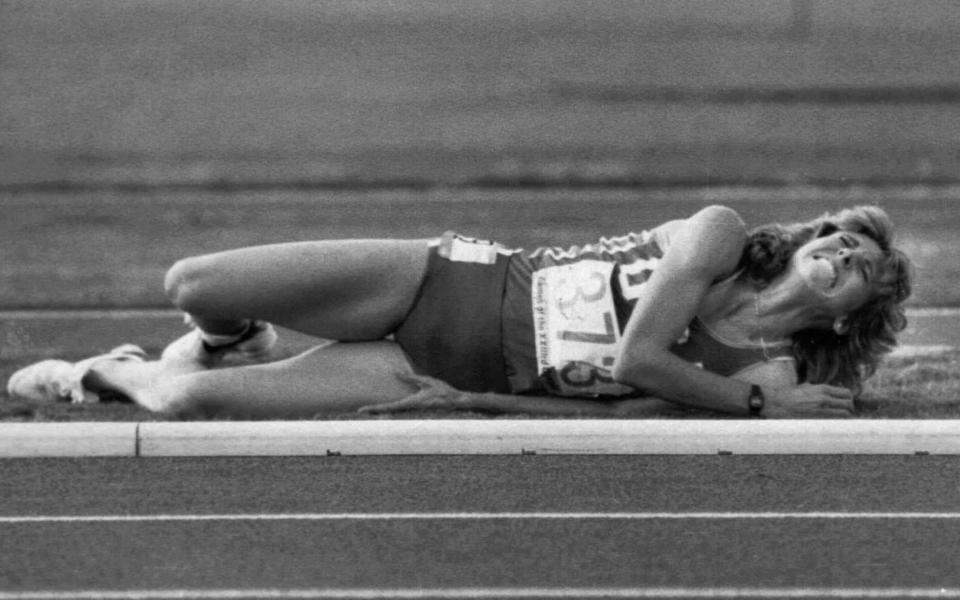
Seoul 1988 – ‘Harmony and progress’
Tennis bounced back onto the international stage after a 64-year absence with Steffi Graf concluding her Grand Slam season by winning gold. Table tennis was also introduced.
The decision to not allow North Korea to co-host was not well received, and with Cuba, Nicaragua and Ethiopia joining them in boycotting the Games.
The drama didn’t stop there – Canada sprinter Ben Johnson set a world record in the 100m before being disqualified for taking steroids – the first notable athlete to be disqualified for using drugs.
Barcelona 1992 – ‘Friends for Life’
The Barcelona Olympics gave us the iconic snap of Paralympic archer Antonio Rebollo using his arrow to light the torch in the Opening Ceremony.
The US basketball ‘Dream Team’ shone, with legendary trio Michael Jordan, Magic Johnson and Larry Bird owned the court and took home gold.
The Games also featured a newly reunified Germany team competing, South Africa’s return after the end of apartheid and the 12 of the 15 new countries following the dissolution of the Soviet Union competing as a Unified Team.
Badminton and women’s judo were introduced, baseball was made a medal-winning sport and canoe slalom returned to the Olympic program.
Atlanta 1996 – ‘Centennial Olympic Games’
A summer of great achievement and innovation was overshadowed by the explosion of a pipe bomb in a terror attack at the Centennial Olympic park, claiming two lives and injuring over a hundred.
A star-studded Opening Ceremony included President Bill Clinton with boxing legend Muhammad Ali lighting the iconic cauldron.
US women swept the floor in softball, basketball, football and the gymnastics team event, while Michael Johnson became the first man in Olympic history to win both the 200m and 400m.
New sports included beach volleyball, mountain biking, lightweight rowing and women’s football.
Sydney 2000 – ‘Games of the New Millennium’
EPO detection and blood tests were introduced in a crackdown on doping, and the divided North and South Korea stood as a united front as they marched into the Opening Ceremony under one flag.
Taekwondo and the triathlon made its Olympics debut, and women competed in weightlifting and the modern pentathlon for the first time.
Australian swimmer Ian Thorpe, competing in his hometown, got his big break with three golds and two silvers to mark him out as the most successful athlete at the 2000 Games.
Britain’s Sir Steve Redgrave also made it five golds at consecutive Games – an Olympic rowing record.
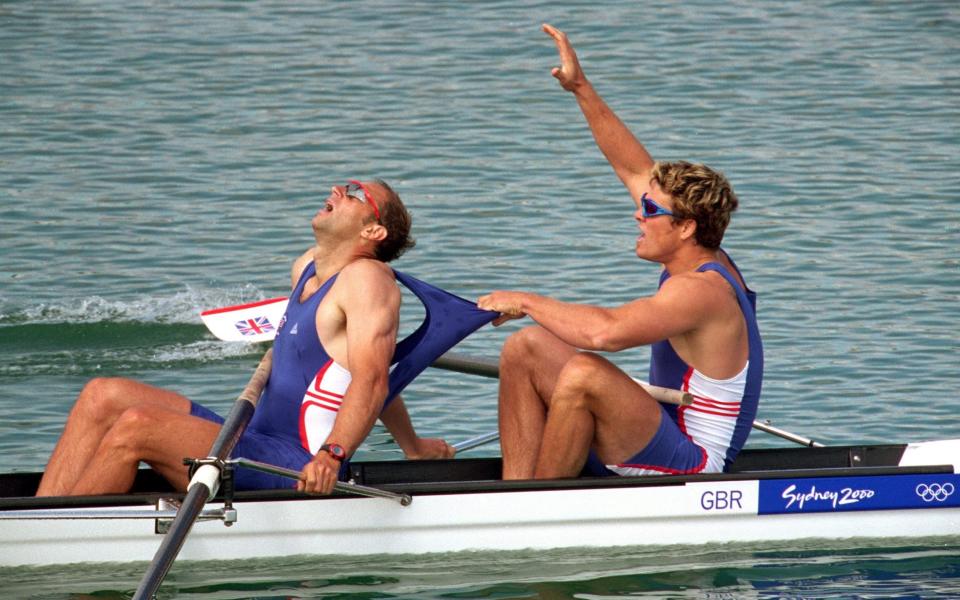
Athens 2004 – ‘Welcome Home’
The birthplace of the Games played host once more, 108 years after the first in 1896.
There were a record number of teams (201) and a debut from Kiribati and East Timor under its own flag added to the diversity of the cohort.
American swimming great Michael Phelps won six gold medals and set a single-Games record with eight medals in total.
German kayaking champion Birgit Fischer came out of retirement for one last hurrah and became the first to win two medals in five different Games, solidifying her place in the kayaking hall of fame.
Beijing 2008 – ‘One World, One dream’
Beijing 2008 was China’s first Olympics, with no expense spared. Setting a new standard with their glitzy opening ceremony, which cost reportedly over $10 million (£7.9m), it set the tone for future Games.
Phelps took home a whopping eight gold medals, bettering his achievements from four years previously, while it remains a feat nobody else has been able to top.
Jamaica’s best sprinter Usain Bolt also made a stunning impression, winning three golds in both the 100 and 200m sprints and the 4x100m relay.
London 2012 – ‘Inspire a Generation’
The London Games, centred around the Olympic Park in East London, were a great one for women, with Saudi Arabia allowing women to compete for the first time and Team USA having a higher ratio of female athletes to males.
The now-disgraced household name Oscar Pistorius made headlines as the first amputee to compete in an Olympic track event, representing South Africa.
Sir Mo Farah famously gold in both the men’s 10,000m and 5000m, with the former coming on what was dubbed ‘Super Saturday’ with Great Britain’s most successful day (six golds) at an Olympics since 1908.
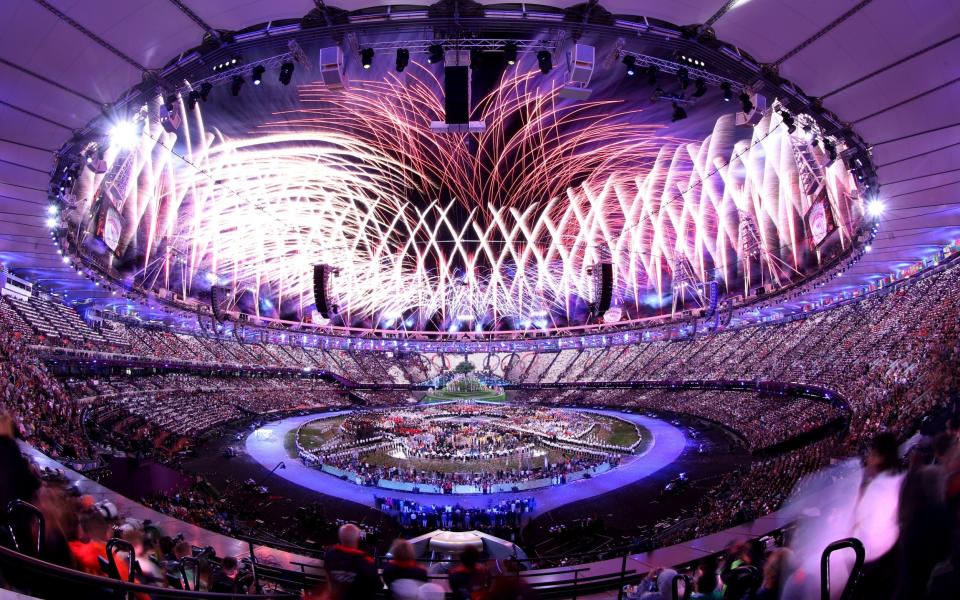
Rio 2016 – ‘A New World’
Zika virus concerns plagued the first Olympic Games held in South America. However, it was one to remember too with the city’s stunning backdrop catching the eye. 11,238 athletes from 207 nations took part, including first-time entrants Kosovo, South Sudan and the Refugee Olympic Team.
Rugby sevens made its Olympic debut with rugby having last featured in 1924. Likewise, golf made is return after 112 years off the program.
US gymnast Simone Biles stunned judges in her first Olympic appearance, taking home four gold medals, and fencer Ibtihaj Muhammad made history as the first Muslim American athlete to compete in a hijab.
Tokyo 2020 – ‘United by Emotion’
An interesting year for sport to say the least, with the Olympic Games, like so many other sporting events, postponed for 12 months to 2021 due to the outbreak of the global Covid-19 pandemic.
When Japan did then get to play host (for the second time in the summer after 1964) the Games were played out in front of empty arenas with spectators banned due to the pandemic, making it the first time in Olympic history a crowd-less Games had taken place.
Aiming to appeal to a new, younger generation, sports such as skateboarding, sport climbing, surfing and karate appeared for the first time, as did events such as BMX freestyle and 3×3 basketball. The Games were also declared the first gender-balanced Olympic Games in history by the IOC.
Paris 2024 – ‘Games wide open’
Paris becomes the second city after London to host the Summer Olympics three times after 1900 and 1924. It is expected to be the first to feature an identical number of male and female athletes. Breaking (also known as breakdancing) will make its Olympic debut.
EMEA Tribune is not involved in this news article, it is taken from our partners and or from the News Agencies. Copyright and Credit go to the News Agencies, email news@emeatribune.com Follow our WhatsApp verified Channel

